

Last updated on
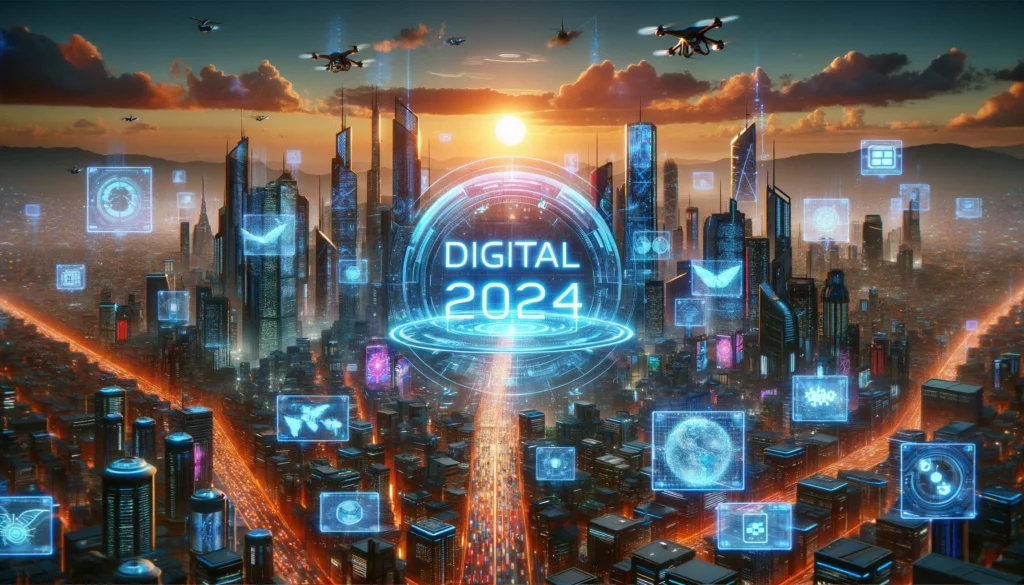
In 2023, DataReportal collaborated with We Are Social, Meltwater, and data partners such as Semrush and Similarweb to produce the Digital 2024: Global Overview Report.
This extensive 561-page report delves into virtually every aspect of global internet usage, offering crucial insights for marketers aiming to optimize their marketing and advertising expenditures in 2024.
Highlighted below are the principal insights for SEO, PPC, and social media marketing drawn from the comprehensive global digital analysis.
In 2023, digital ad spending accounted for 70% of the $1.03 trillion total ad spending, marking a notable year-on-year increase of 10.6%.
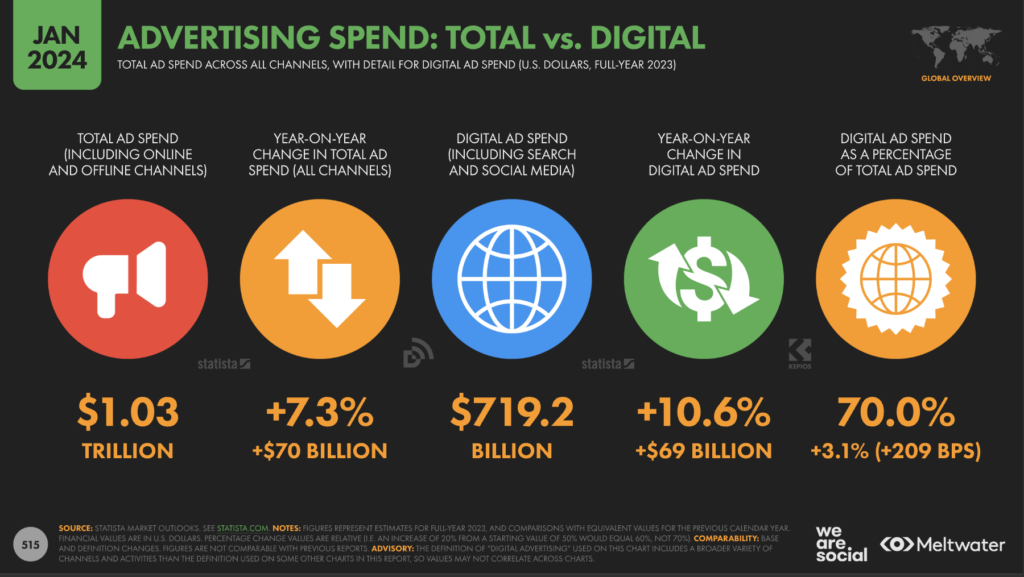
As generative AI continues to reshape the landscape of search engine results pages (SERPs) and advertising opportunities, brands must evolve and explore innovative approaches to connect with consumers. This trend is evident in the significant surge in spending year over year, particularly in areas such as online influencers and digital audio.
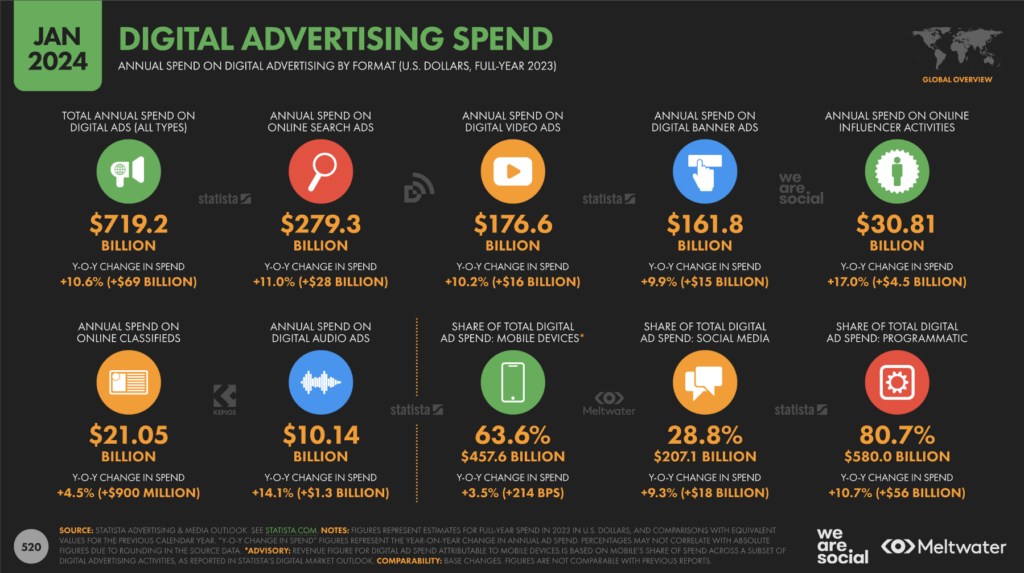
Nevertheless, online search and video ad expenditures remain significant, comprising over half of the total digital advertising spend. This underscores the importance of platforms like Google Ads, equipped with Gemini-powered tools, as indispensable avenues for brands to engage with consumers across Google SERPs, YouTube, and the Display Network.
Search advertising, which represents 38.8% of the overall digital advertising expenditure, experienced a notable 11% year-on-year growth.
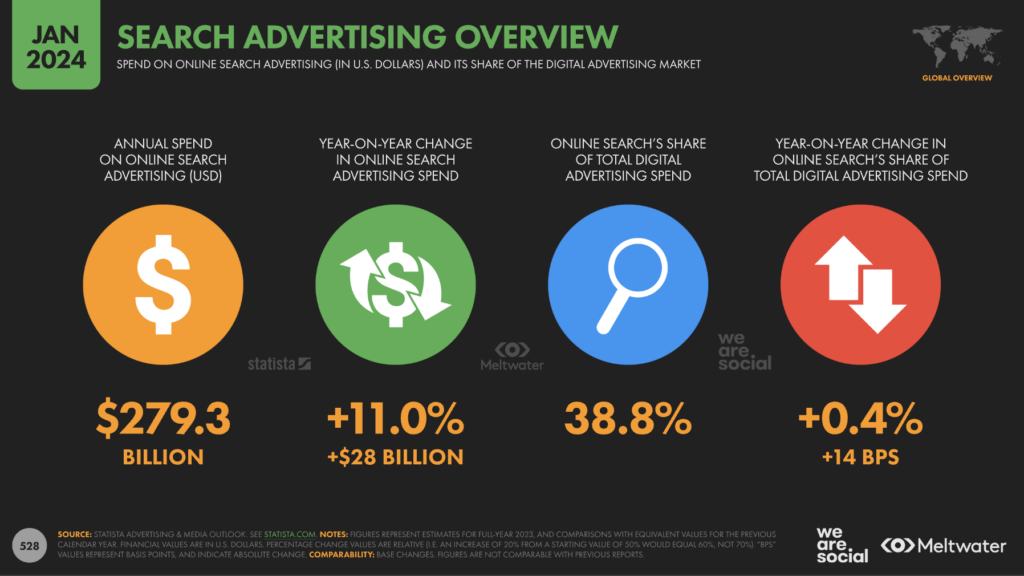
Impressions for search advertising have seen an uptick, maintaining a steady click-through rate of nearly 2%.
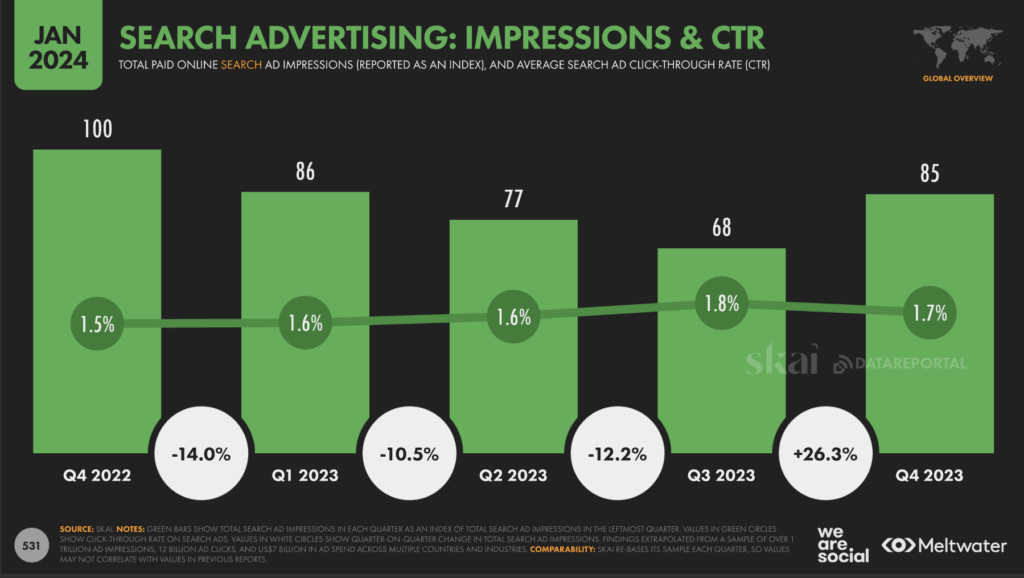
However, the cost-per-click (CPC) for search ads has continued its upward trajectory, showing a modest 2.3% year-on-year increase.
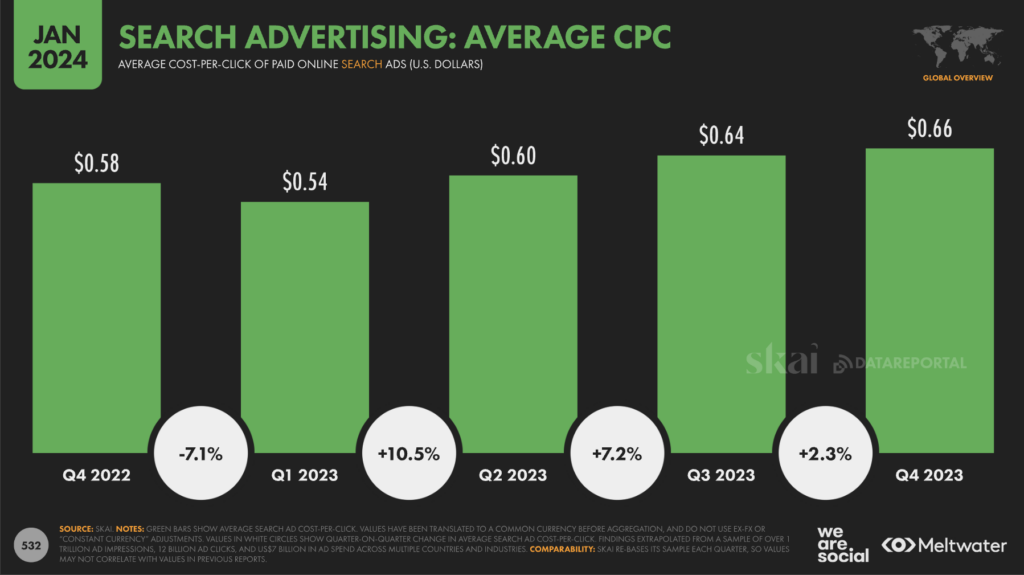
Is SEO obsolete? Not at all – its methodology will consistently evolve to align with contemporary trends, algorithmic shifts, and emerging technologies.
Marketers are urged to persist in their investment in search optimization as consumers predominantly rely on search engines for brand exploration, ultimately influencing their purchasing choices.
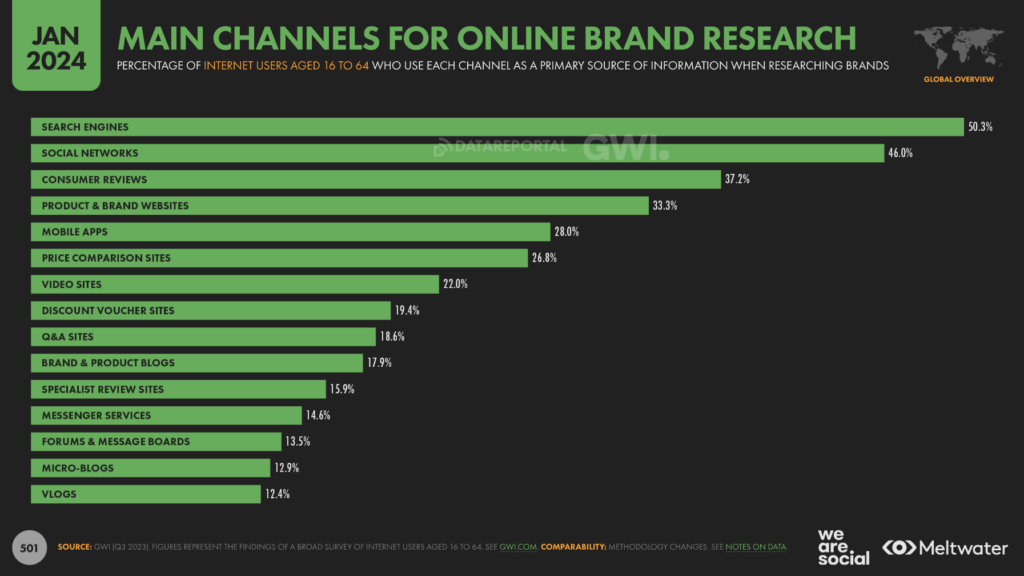
Moreover, search remains pivotal in facilitating the discovery of new brands, products, and services for nearly one-third of consumers.
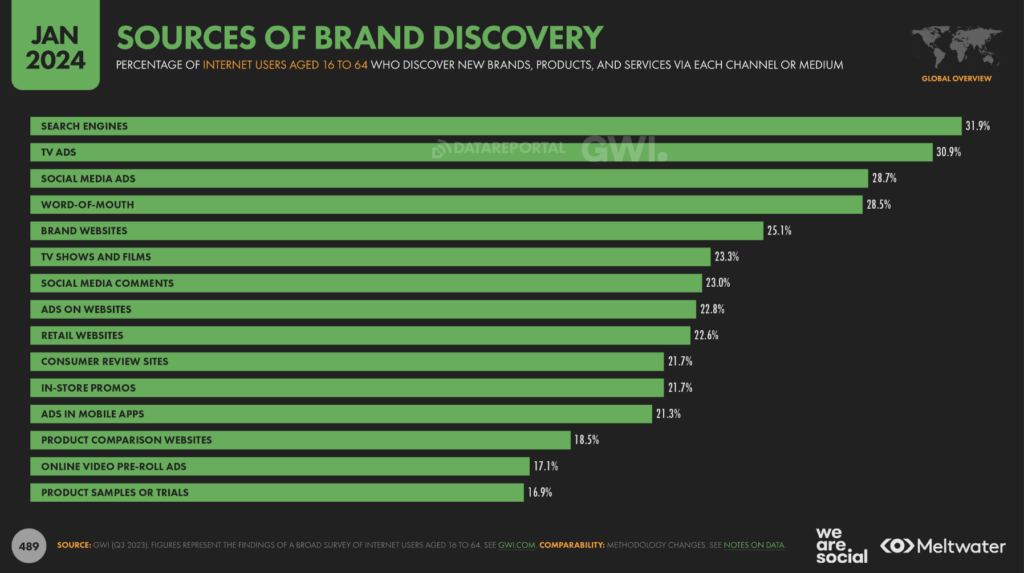
It’s noteworthy that while Google continues to dominate the search market, Bing is experiencing a noteworthy uptick, boasting an 11.2% year-over-year increase.
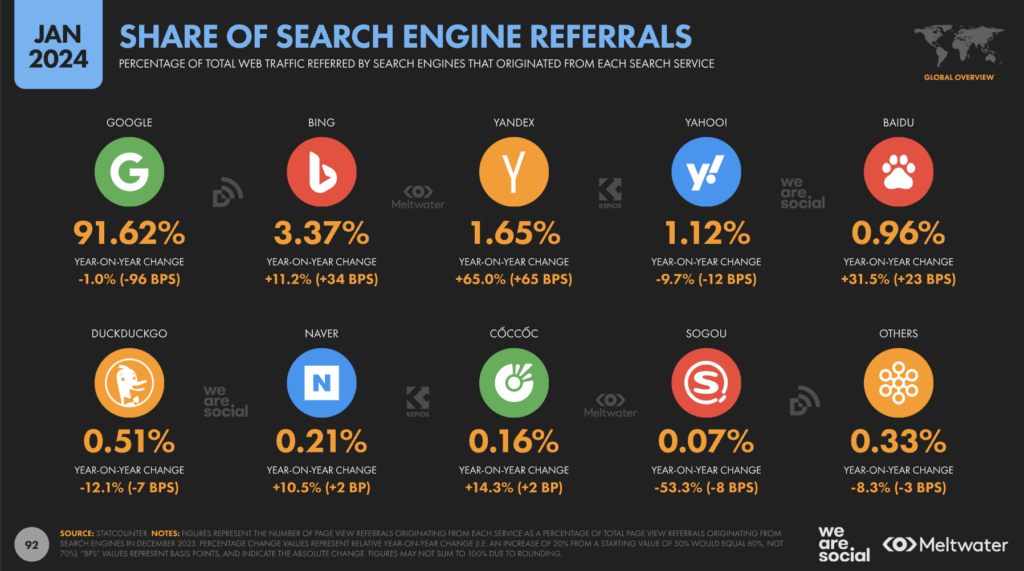
This surge could be attributed to Bing’s strides in integrating generative AI chat within its search platform, positioning Bing as the preferred browser feature for users of ChatGPT.
Marketers should be mindful that after search engines, social media emerges as the second most utilized channel for brand research.
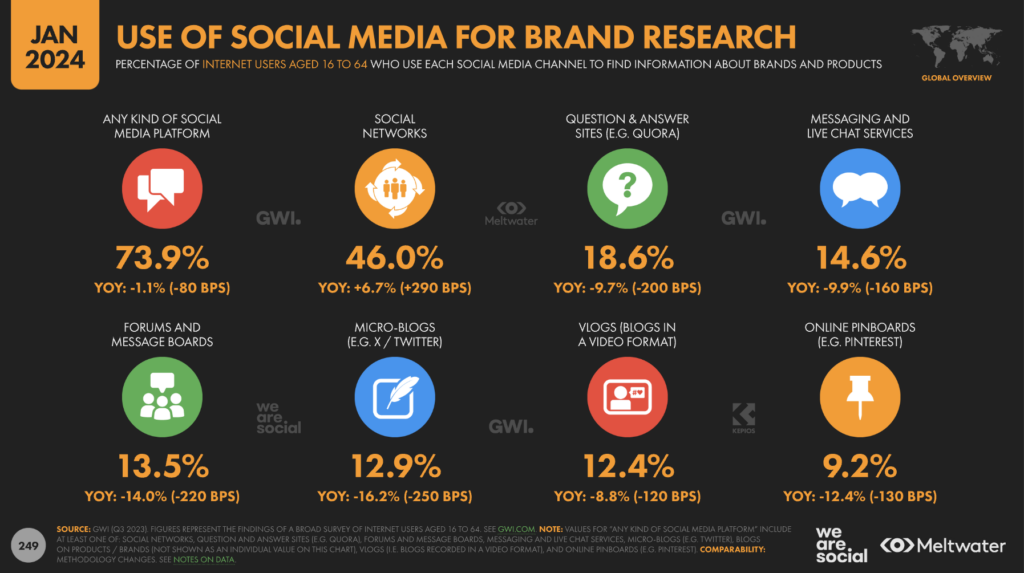
Considering the growing presence of social media posts within Google’s Search Engine Results Pages (SERPs), investing in social media marketing has become another vital domain for brand advertisers.
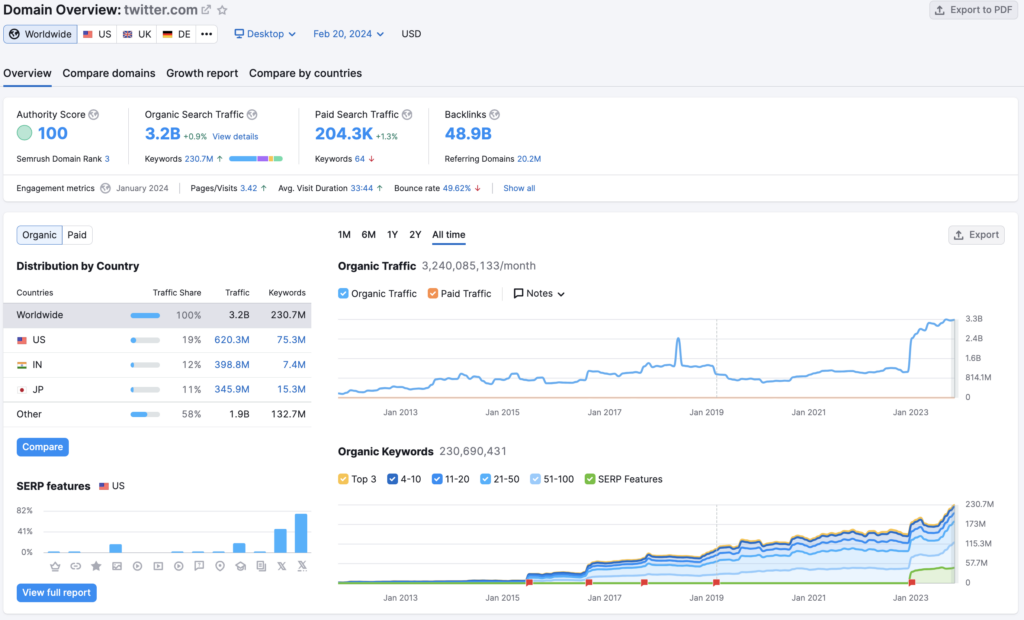

In addition to enhancing search visibility, consumers primarily engage with brands through various social media activities, including watching videos, following accounts, utilizing social share buttons on brand websites, clicking on promoted content, and reaching out to brands with inquiries via social channels.
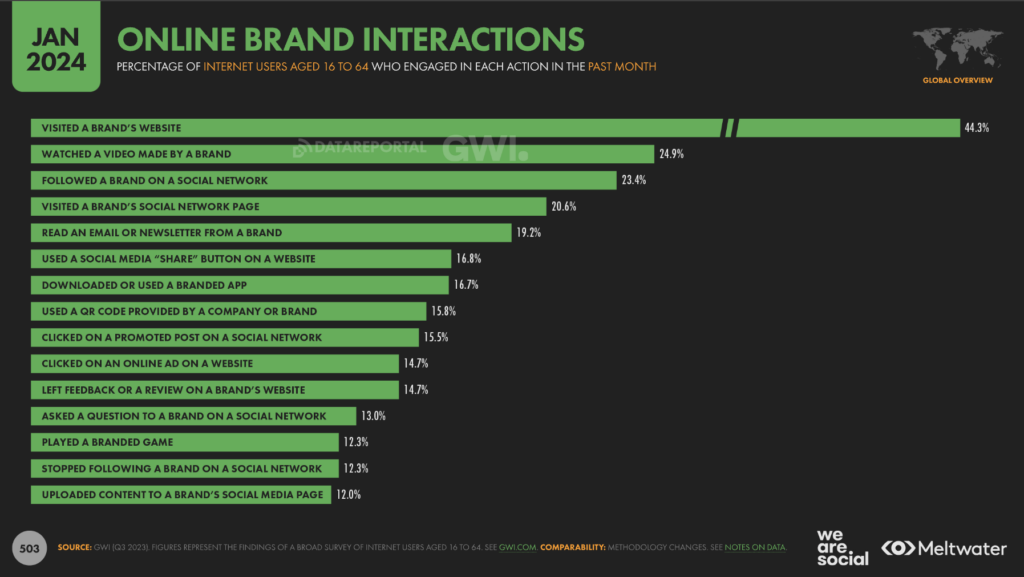
Google appears to have not only increased the visibility of social media posts in search results but also integrated engagement metrics such as views, comments, and likes directly into its SERPs.
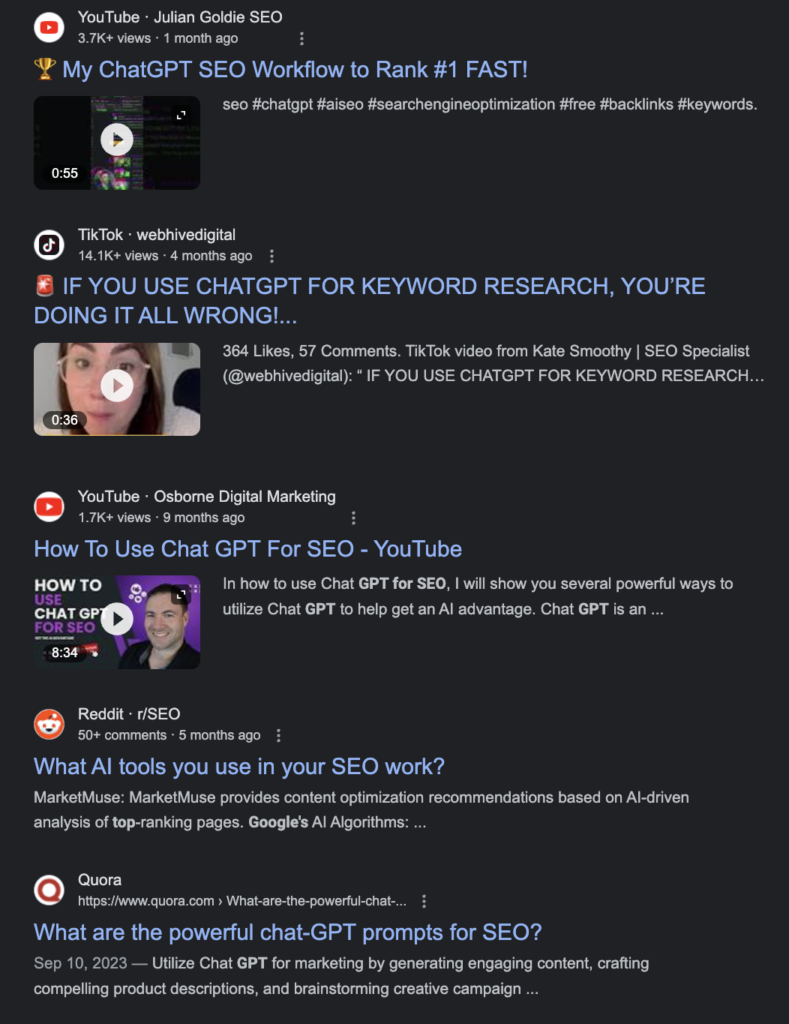
One effective way to enhance engagement with content on platforms like TikTok is by leveraging popular or trending hashtags.
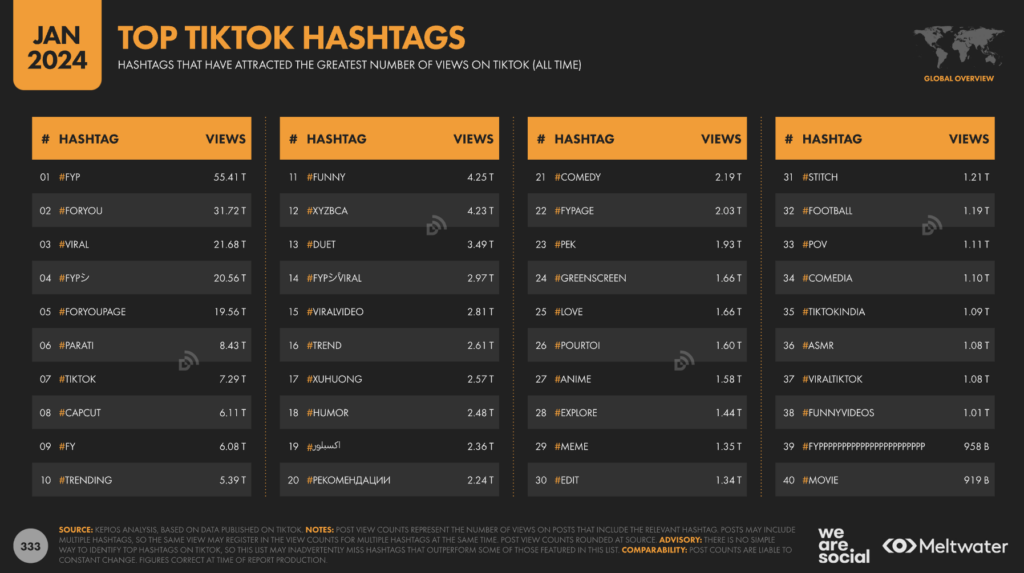
Although there may be some overlap, the top-used hashtags on Instagram present distinct opportunities for Reels and images.
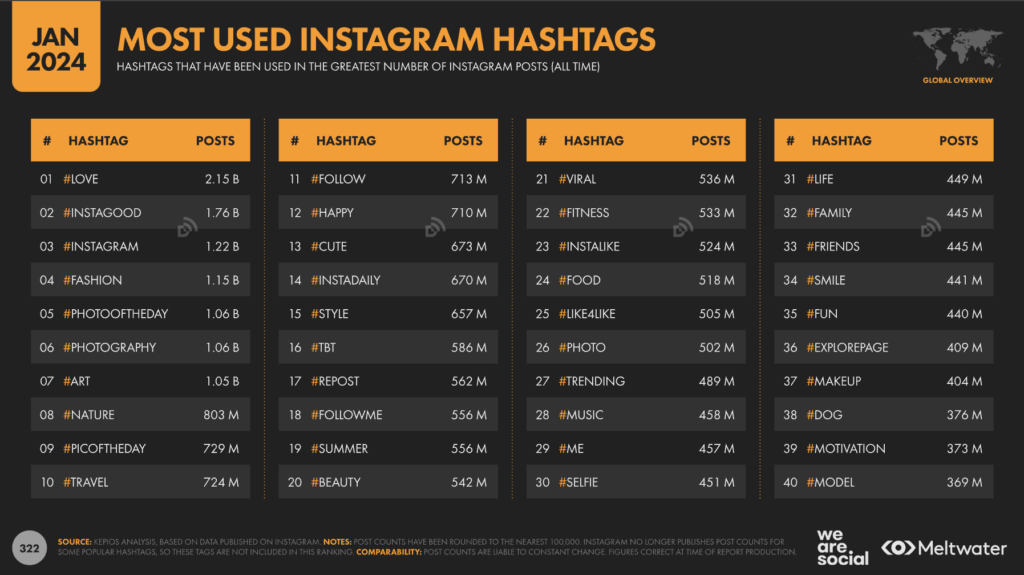
On the flip side, B2B marketers might discover that the most followed hashtags on LinkedIn are more conducive to enhancing visibility and engagement.
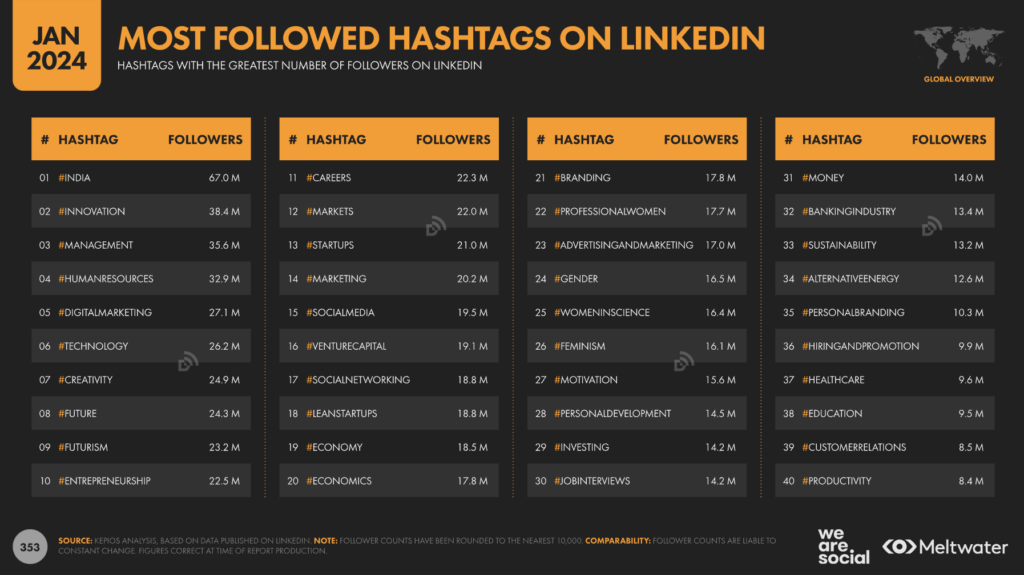
Utilizing the search functionality on various social platforms can provide valuable insights into industry-specific hashtags. For instance, Facebook displays the number of posts and followers associated with popular hashtags, as illustrated below.
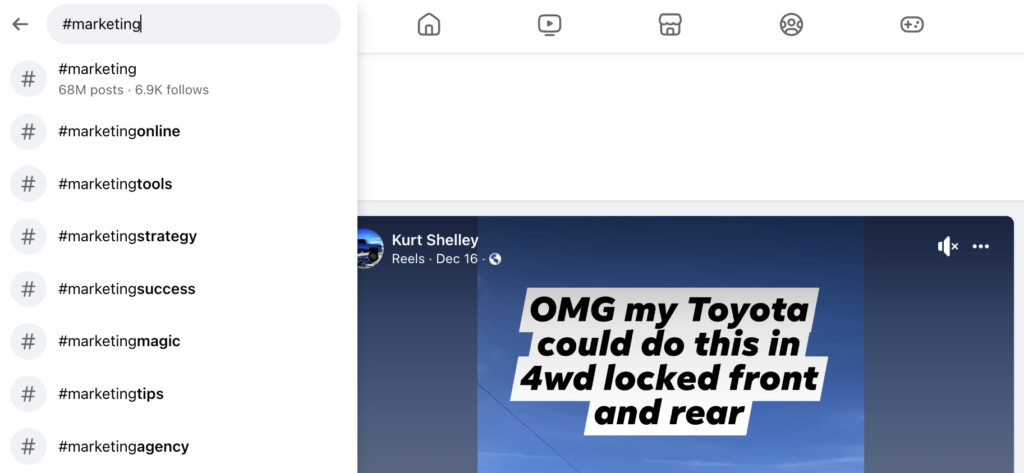
In today’s Google Search Engine Results Pages (SERPs), incorporating videos from platforms like YouTube, TikTok, and various social networks has become commonplace. This trend underscores the importance for brands to prioritize video content creation in order to engage their desired audience effectively.
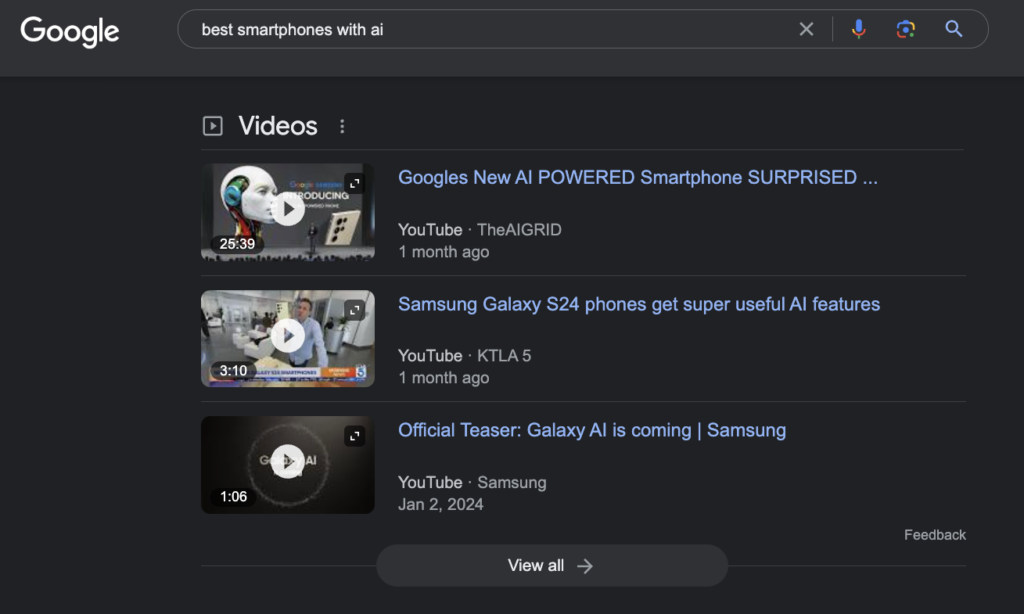
Among the plethora of video content types, several stand out as particularly popular.
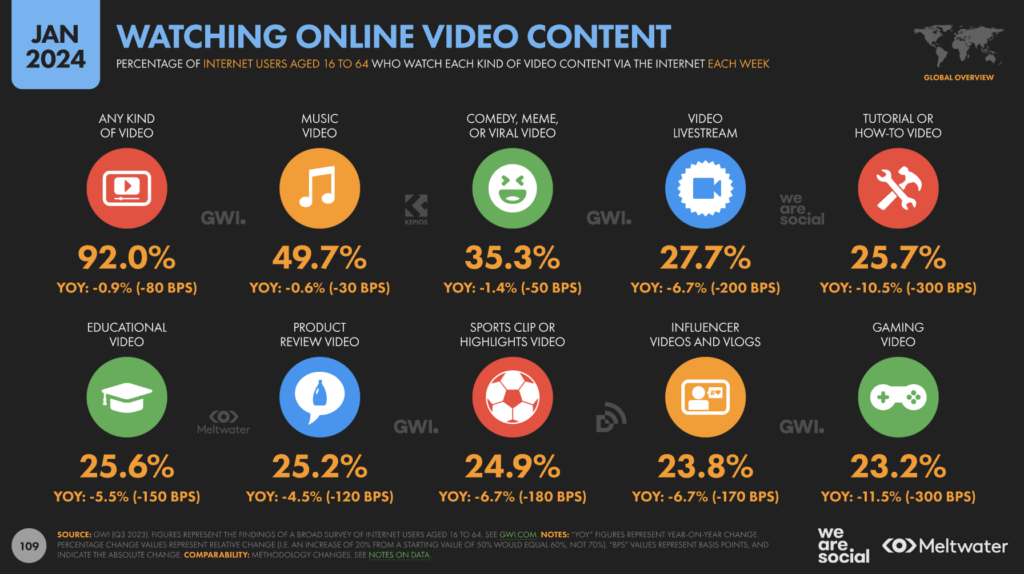
For instance, Nissan took an innovative approach to showcase its latest electric car model by producing a four-hour music video tailored for enthusiasts of lo-fi music.
To further enhance content strategy, consider combining the most-watched video types with insights from YouTube’s trending keywords and topics, providing valuable inspiration for creating engaging and relevant content.
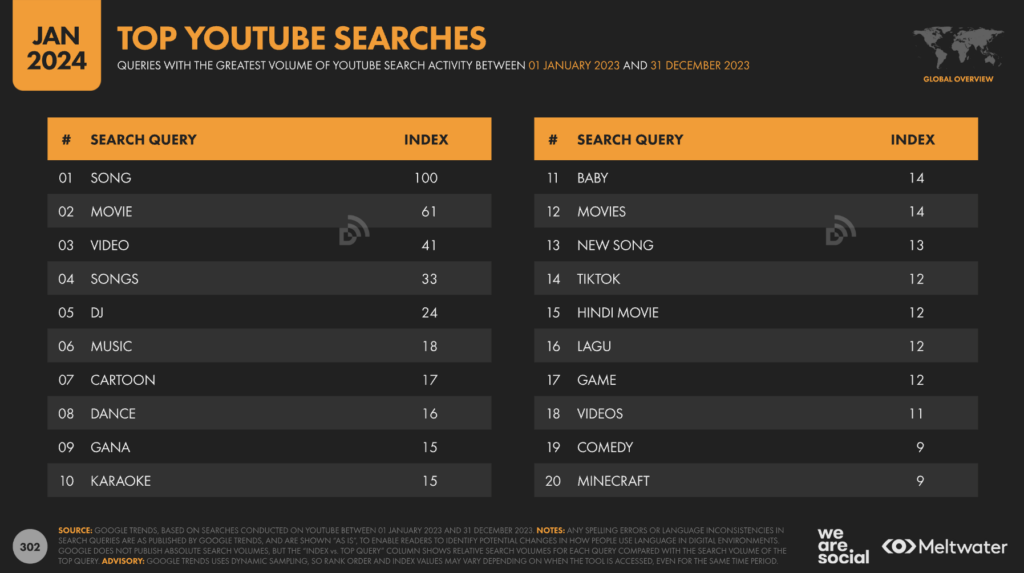
Consumer electronics and fashion dominate Google’s list of most searched shopping terms.
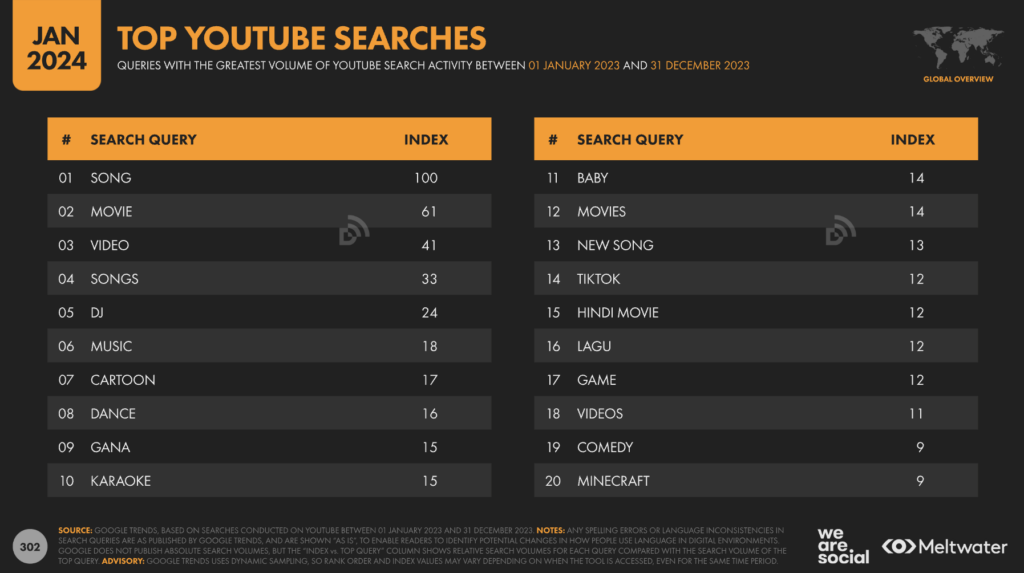
Moreover, leveraging specific keywords to assist consumers in locating the most advantageous deals can significantly influence their purchasing decisions.
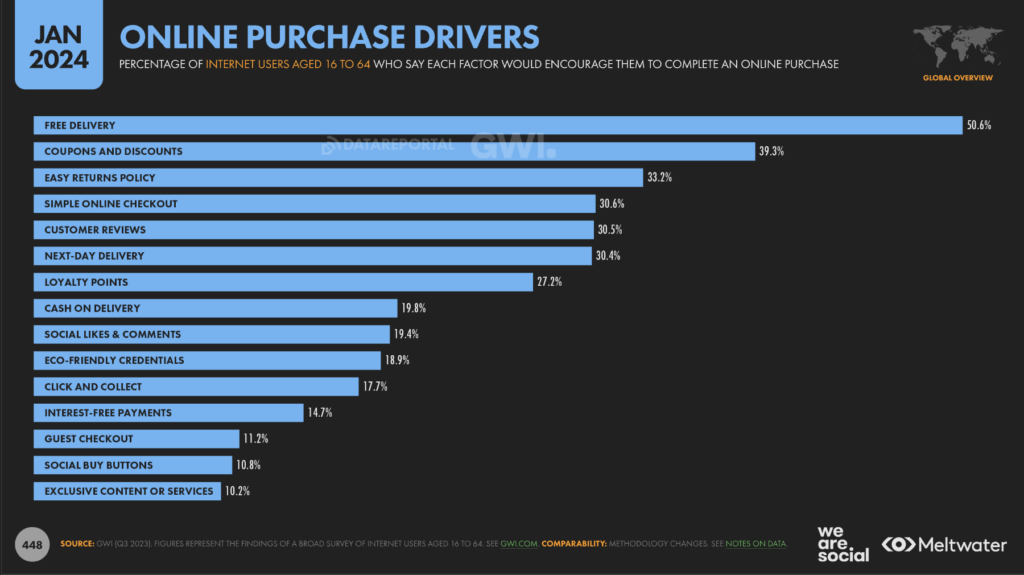
To enhance the visibility of your ecommerce platform among individuals actively seeking to make purchases, explore strategies for incorporating keyword-rich content that enhances conversion rates.
For instance, if your online store provides coupon codes, establishing a dedicated webpage featuring current promotions could prove highly beneficial.
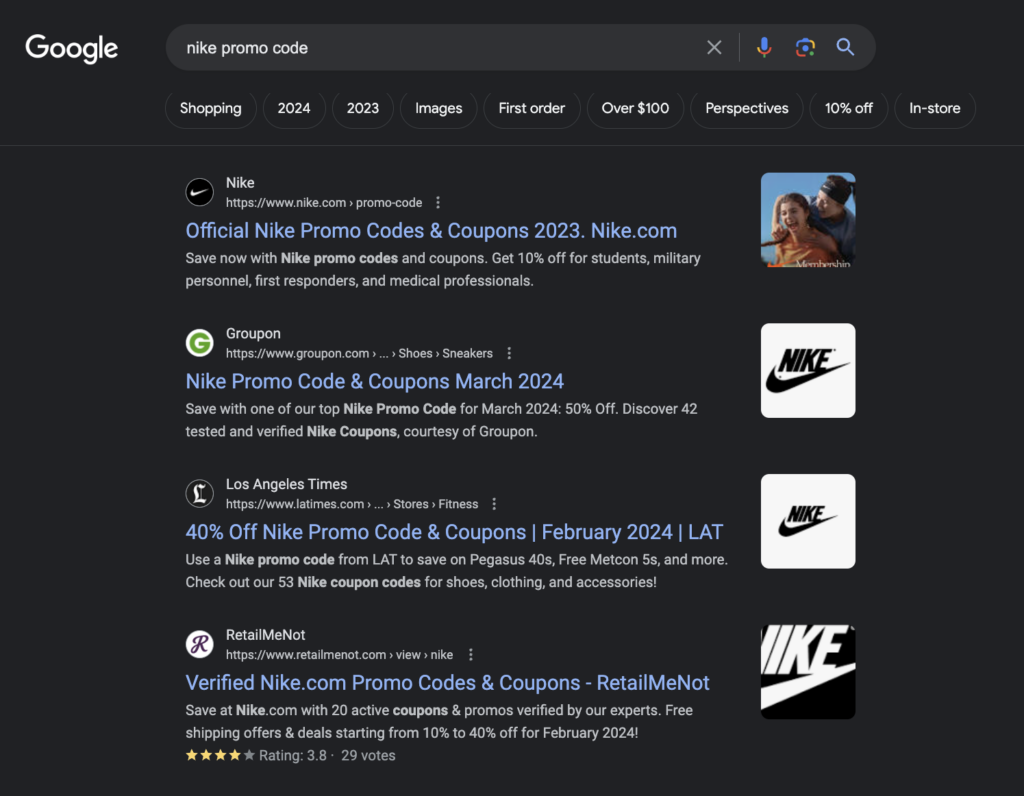
Not only does this tactic contribute to increased sales, but it also enhances your presence in search engine results, given the substantial search volume associated with promo codes and related terms.
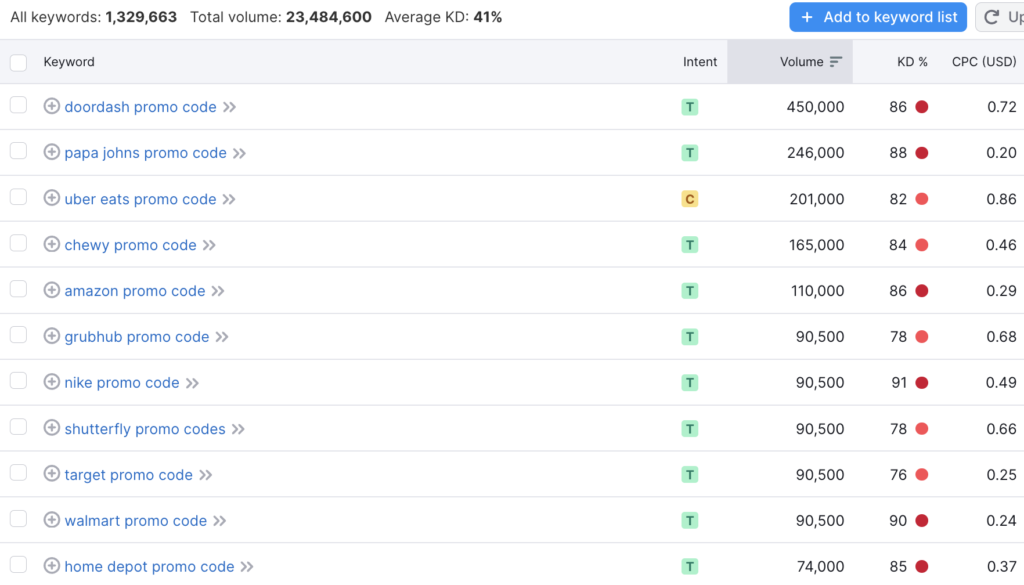
As the annual count of mobile Internet users continues to rise, the usage of laptops or desktops diminishes. Whether individuals are at work or home, mobile devices have become their preferred choice. Thus, it’s imperative to prioritize mobile performance when designing any digital experience, ranging from website overhauls to email marketing initiatives.
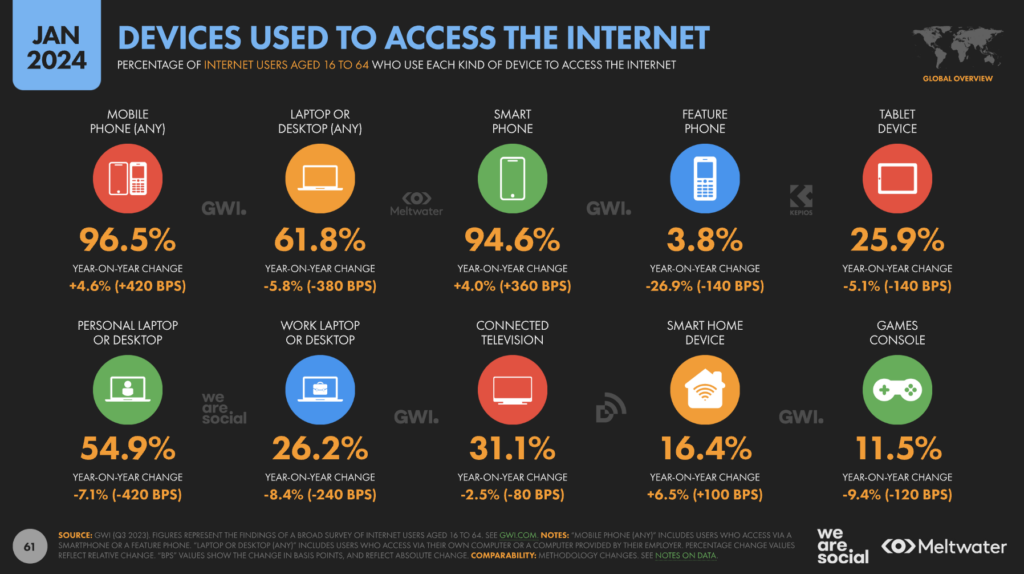
Given that a majority of smartphone users utilize Android devices, it’s crucial to maintain consistency in user experience across your website and app, especially within the Google Play store.
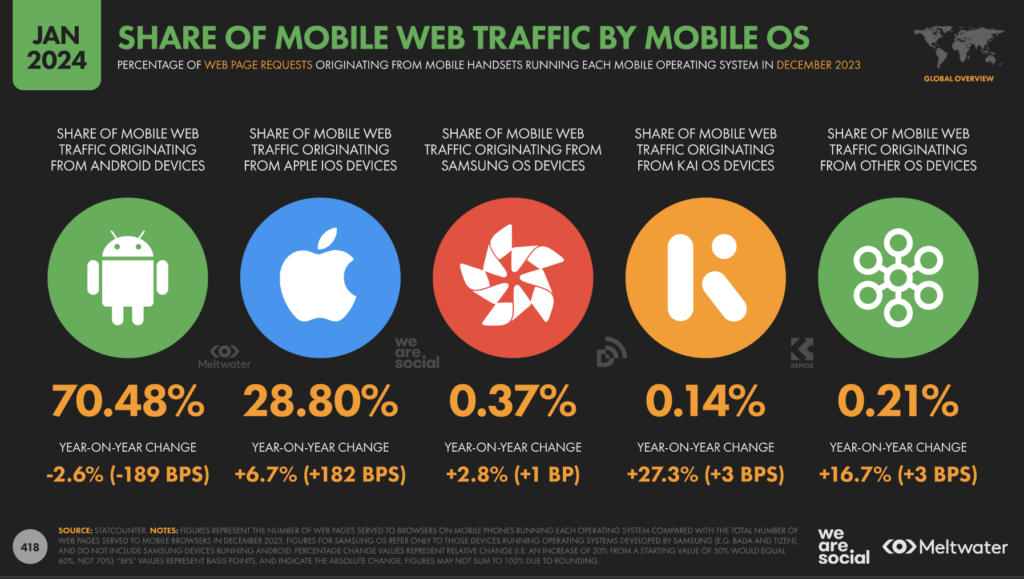
Furthermore, with over half of all online visitors accessing the web via Google Chrome, it’s essential for advertisers to stay abreast of the latest ad targeting options, particularly as Chrome phases out third-party cookies. This ensures that advertising efforts remain effective in reaching the intended audience.
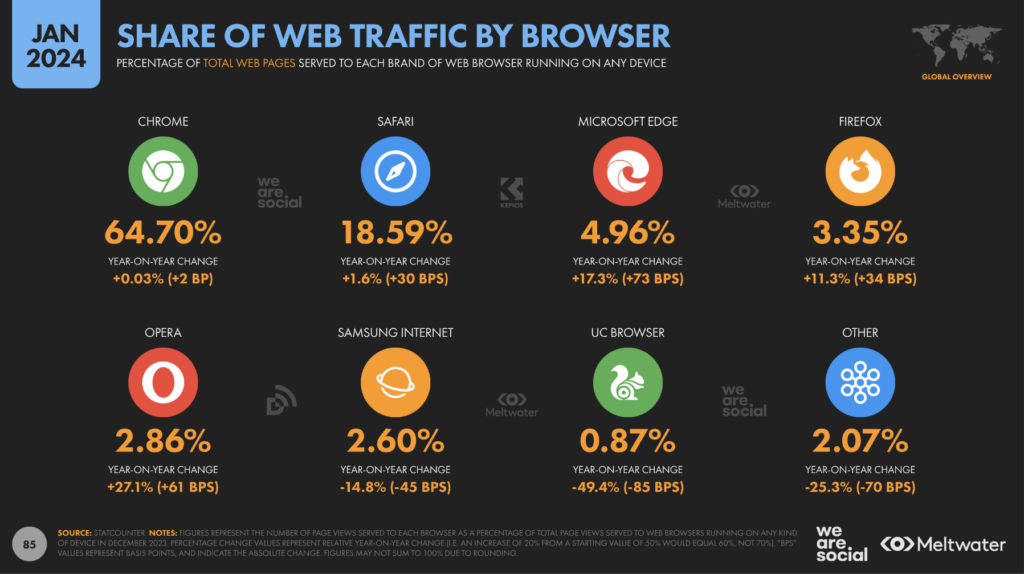
As the marketing landscape undergoes continual transformation, marketers are urged to prioritize investments in mobile-friendly digital experiences, engaging social media content, and secure generative AI tools tailored for brand advertisers and enterprises. We trust that these insights gleaned from DataReportal’s Digital 2024: Global Overview Report will assist you in crafting a lucrative marketing strategy for the year 2024.
Original news from SearchEngineJournal